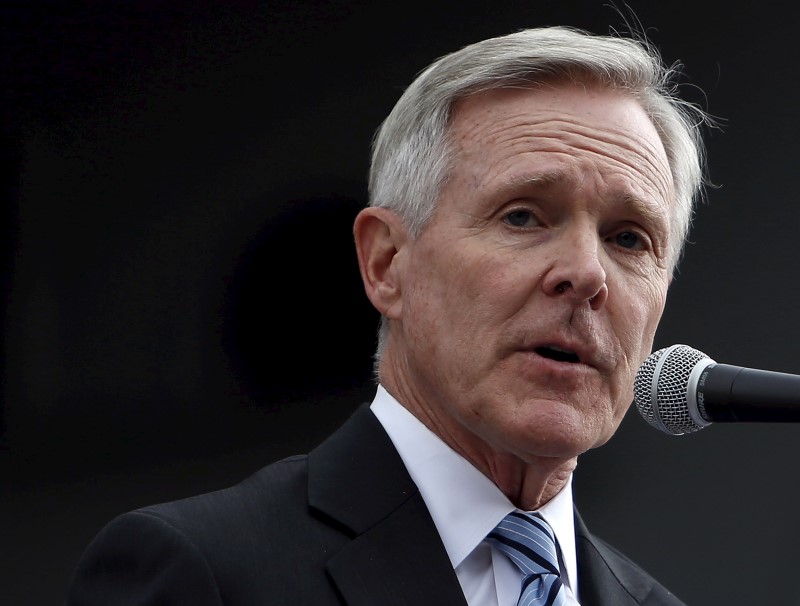By Andrea Shalal
BERLIN (Reuters) – The U.S. could see the cost of new Boeing Co <BA.N> F/A-18E/F Super Hornets rise unless the government approves foreign sales of the jets soon, U.S. Navy Secretary Ray Mabus said on Sunday.
Mabus, in Germany for a NATO exercise in the Baltic Sea, told Reuters he was frustrated by delays in approving the sale of the Boeing jets to a close U.S. ally, warning that this could affect the cost of jets the U.S. Navy still wants to buy.
U.S. Navy and other defense officials have said they support the sale of 28 Boeing F/A-18E/F jets to Kuwait for an estimated cost of $3 billion, but this has stalled for nearly a year pending final White House approval.
Mabus said the delays could have an impact on the Navy’s budget plans, since the foreign order was needed to augment U.S. Navy purchases and keep the production line running efficiently.
The U.S. Congress is expected to approve funding for as many as 16 Boeing F/A-18 jets as part of the Navy’s budget request for fiscal 2017, which begins Oct. 1, but that would give Boeing less than the two jets a month it says needs for economical production. The Kuwaiti order would have filled this gap.
“I’m frustrated. A lot of people are frustrated,” Mabus said. “The process is too long, too onerous in terms of getting weapons systems to our friends and to our allies.”
Mabus said Boeing could likely continue F/A-18 production for some time without the foreign sales, but dropping below optimal production rates could affect future pricing.
The Navy had requested funding for two F/A-18 jets in its fiscal 2017 budget request and 14 more as part of its “unfunded priorities list”. It also said it expected to buy a larger number of Super Hornets in fiscal 2018 to bridge a gap in its fleet until the newer and more advanced Lockheed Martin Corp <LMT.N> F-35 fighter jet enters service in coming years.
Mabus welcomed possible moves by Congress to add jets to the fiscal 2017 budget, but said those orders alone would not keep production at the Boeing facility running at optimal rates.
“The line wouldn’t be operating as well as it should, and the price probably would go up for us because there aren’t as many planes coming through,” he said.
Boeing welcomed the secretary’s remarks.
“Boeing appreciates the continuing engagement of Secretary Mabus, and agrees that a Kuwaiti order is an important element in continuing a production rate of two per month to keep prices optimal,” Boeing spokeswoman Caroline Hutcheson said.
The company needs to maintain production to remain competitive in bidding for other F/A-18 orders from other countries as it is now spending “hundreds of millions of dollars” to buy long-lead materials such as titanium to prepare for new orders from the Navy and Kuwait.
(Editing by Alexander Smith)


